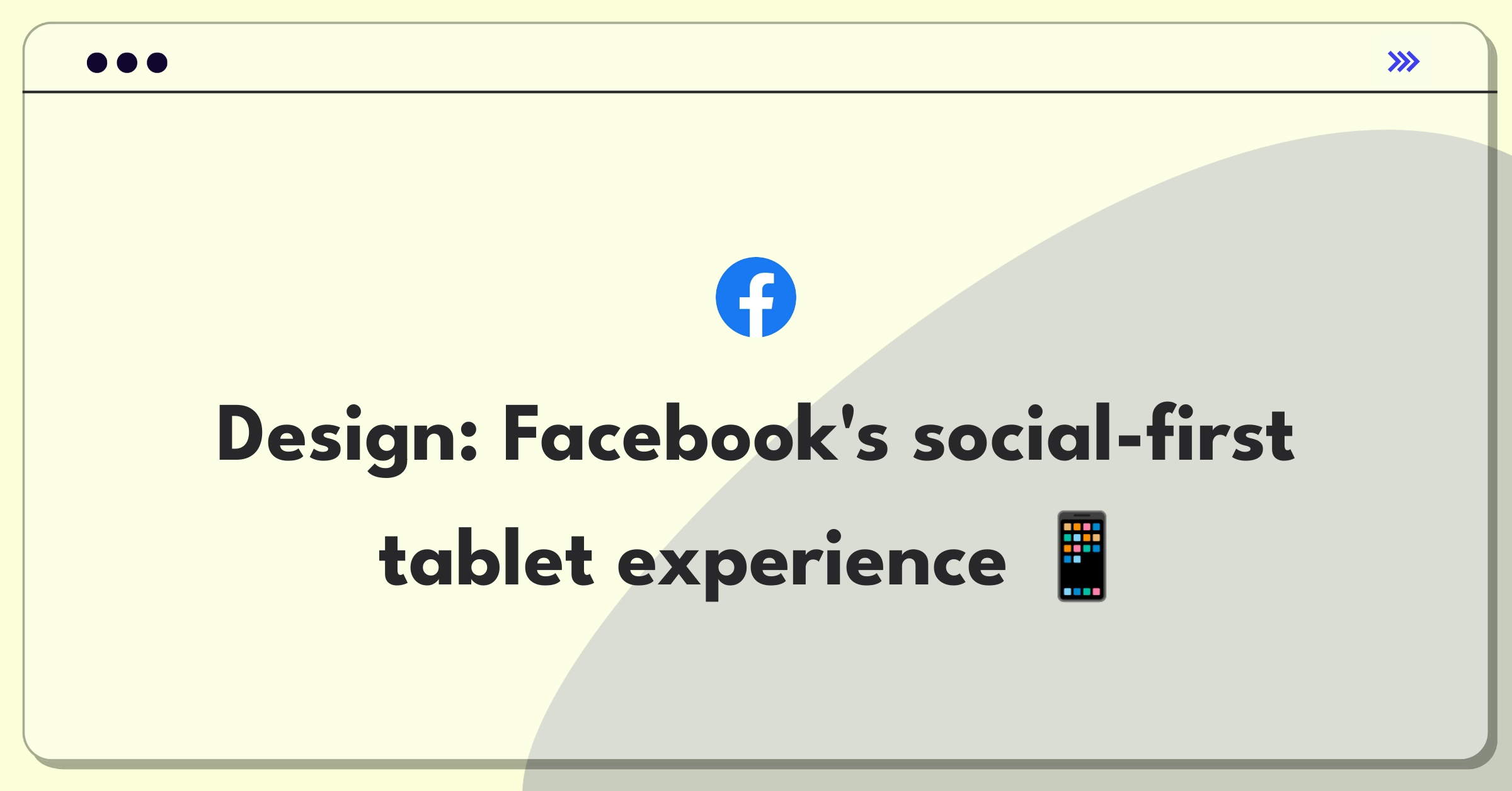Thank you for providing such a comprehensive framework for addressing this product strategy question. I'll do my best to provide a detailed, strategic answer that demonstrates deep product thinking and leadership within the given time frame. I'll use a first-person perspective as if I'm directly addressing the interviewer.
Introduction
The strategic problem at hand is whether Facebook should build a tablet. This decision has significant implications for Facebook's product ecosystem, market positioning, and long-term growth strategy. Our key business objectives in considering this move would likely include expanding our user base, increasing engagement, and potentially opening new revenue streams.
To address this question, I'll follow a structured approach:
- Clarify strategic goals
- Conduct market and competitive analysis
- Define product vision and roadmap
- Prioritize strategic initiatives
- Develop an execution plan
- Establish metrics and KPIs
- Manage risks and create contingency plans
Let's begin by clarifying our strategic goals to ensure we're aligned on the broader context of this decision.
Step 1
Clarify the Strategic Goals (3-4 minutes)
Why it matters: This helps determine if we're looking at the tablet as a standalone product or as part of a larger connected experience strategy. Expected answer: The tablet could be seen as an opportunity to create a more immersive social experience and potentially bridge the gap between mobile and desktop usage. Impact on approach: If it's part of a larger ecosystem play, we'd focus on deep integration with existing Facebook services. If it's more standalone, we might prioritize unique features that differentiate it in the tablet market.
Why it matters: This helps us understand if the tablet is a stepping stone to future technologies or an end in itself. Expected answer: The tablet could be seen as a bridge technology, helping us build hardware capabilities while the market for more advanced technologies matures. Impact on approach: If it's a bridge, we'd design with future compatibility in mind. If it's a long-term play, we'd focus more on perfecting the tablet experience itself.
Why it matters: This helps us tailor the product strategy to specific user needs and ensures we're not just creating a "me-too" product. Expected answer: We might be targeting families or older users who prefer larger screens but want a simpler, more social-focused device. Impact on approach: This would significantly influence our feature prioritization and design decisions, focusing on ease of use and social connectivity if that's our target audience.
Based on the answers to these questions, I'll make the following assumptions for our strategy:
- The tablet is part of a broader ecosystem play to increase user engagement across devices.
- It serves as both a current product opportunity and a stepping stone for future hardware development.
- We're targeting users who value a larger screen for social interactions but prefer a simpler, more focused device than a traditional tablet or computer.
Tip
I'll take a moment to organize my thoughts and ensure my strategic approach aligns with Facebook's objectives before moving on to the market analysis.
Subscribe to access the full answer
Monthly Plan
The perfect plan for PMs who are in the final leg of their interview preparation
$99 /month
- Access to 8,000+ PM Questions
- 10 AI resume reviews credits
- Access to company guides
- Basic email support
- Access to community Q&A
Yearly Plan
The ultimate plan for aspiring PMs, SPMs and those preparing for big-tech
$99 $33 /month
- Everything in monthly plan
- Priority queue for AI resume review
- Monthly/Weekly newsletters
- Access to premium features
- Priority response to requested question


.png)